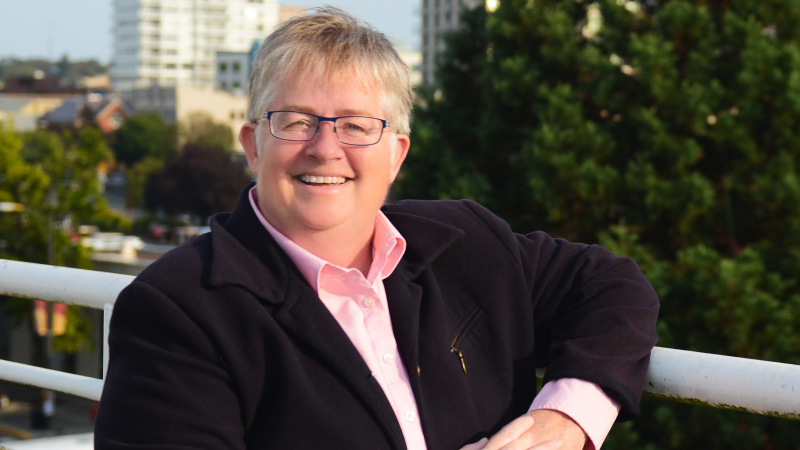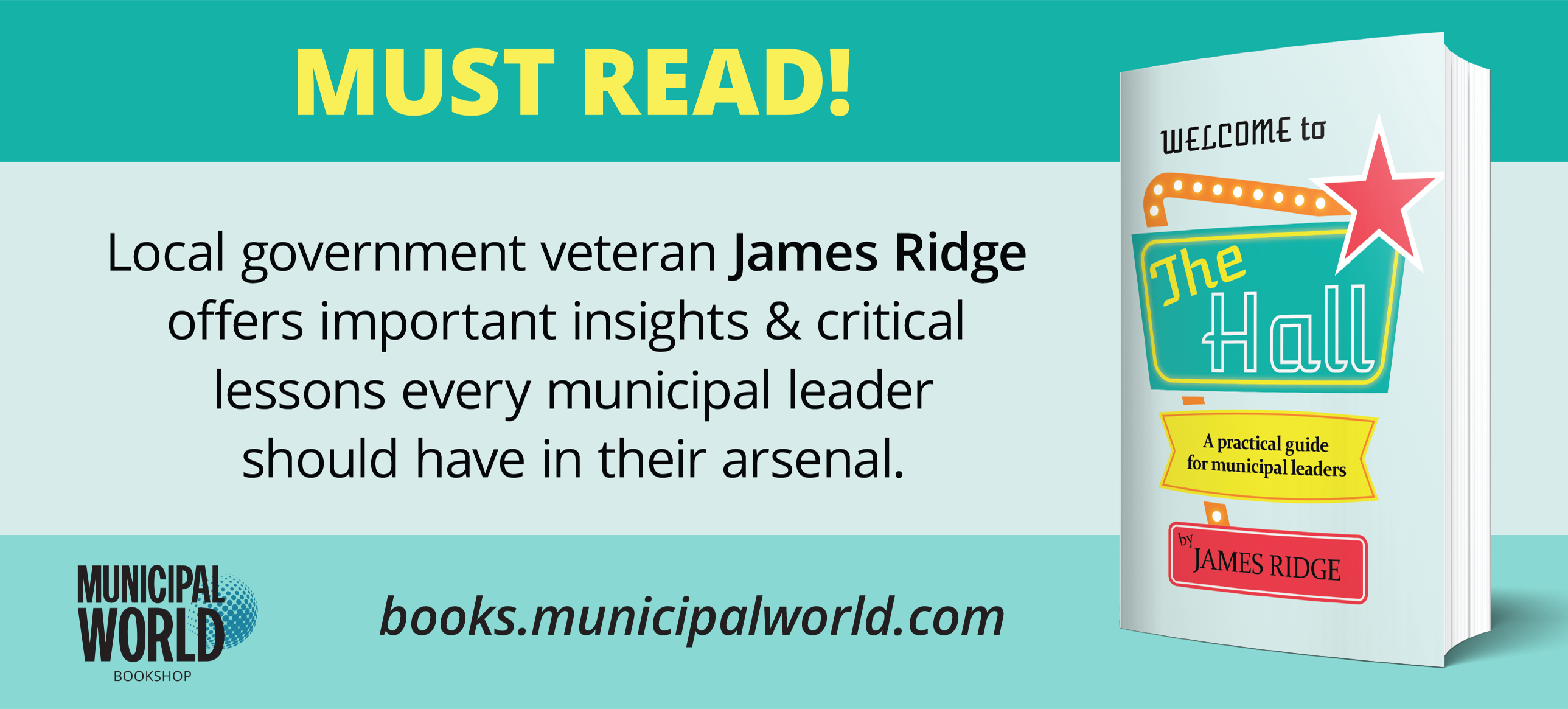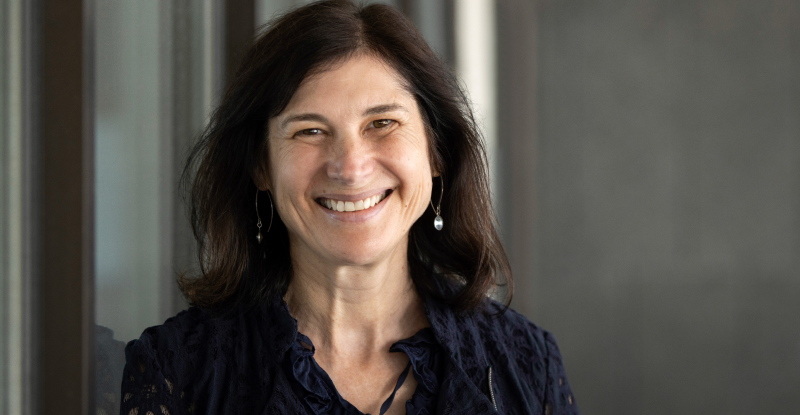Mayor Marianne Alto: Bringing greater civility to Victoria city hall
 “We are going to have discussions that are difficult and challenging," said Victoria Mayor Marianne Alto. "And at that point, hopefully to find solutions for the benefit of as many people as possible, [we are] recognizing our differences, but doing so in a civil tone.”
“We are going to have discussions that are difficult and challenging," said Victoria Mayor Marianne Alto. "And at that point, hopefully to find solutions for the benefit of as many people as possible, [we are] recognizing our differences, but doing so in a civil tone.”
Victoria Mayor Marianne Alto is a facilitator by trade, a skill that certainly comes into play within the city council chamber. Alto was first elected to Victoria council in 2010. A dozen years later, she was elected to the mayor’s seat on the promise of bringing a greater level of civility to council chambers.
Alto’s 12 years on council made her quite familiar with the procedures and processes of local government. But over that time, Alto also noticed what she calls a profound decline in the civility of civil discourse.
With those years of experience behind her, Alto was well positioned to review council’s policies and procedures. Her goal: to update those policies with the goal of updating them for today’s political climate.
Higher Level of Civility
Over her first six months as mayor, Alto worked to review the city’s procedures. Once complete, she crafted a bylaw that would propose changes to how council operates. Victoria council passed the bylaw in August before the changes took effect at the beginning of September.
The changes would provide greater clarity, transparency, ease of understanding, and efficiency.
Alto said she wanted to “reinstate, reimagine, and – maybe it’s appropriate to say – demand” a return to greater civility. That way, when people come to city hall to debate the topic of the day, council can make smart decisions that also recognize differences of opinion.
“We had to do the job with civility,” Alto said. “We had to have a chamber that’s hospitable and welcoming, but that has that demand of you that we’re not going to yell at one another.
“We’re going to have these discussions that are difficult and challenging. And at that point, hopefully to find solutions for the benefit of as many people as possible, [we are] recognizing our differences, but doing so in a civil tone. And that’s been, for me, a really important piece.”
Alto as a member of council worked with the city’s two previous mayors, Dean Fortin and Lisa Helps. That helped her feel prepared to step into the big chair. But while there has been nothing unexpected, Alto said she did learn something new. She learned to appreciate that being in the mayor’s seat meant she needed a greater ability – in fact, an expectation – to look at the big picture.
Every move council makes requires the nuances, details, and intricacies of that decision. But from her chair, Alto must situate that single decision not only within the whole of council, but with how it affects the city at large.
“It’s interesting, being in the mayor’s chair has a number of different sort of themes in my head,” Alto said. “There’s my personal individual views of the world and how that guides me in voting on specific things. But then there’s sort of two other pieces.
“One is that in my other job, I’m a facilitator; I’ve done that for many years. Part of my job as the mayor, I believe, is to help facilitate all my council members to the best of their ability.”
Challenges in Local Government
Alto, as a veteran of local government, said there has been a noticeable deterioration in the level of civil debate around politics at all levels.
To a certain extent, Alto said, this lack of civility transcends all aspects of social discourse. The COVID-19 pandemic may have accelerated this descent, but it is something she said has been happening for decades.
Alto said one of the reasons for this downward trend is the profound change in the challenges that face local governments. Municipal leaders from across the country are calling on the federal government to reimagine the financial distribution of taxation. That, Alto said, is a symptom of something larger.
The fact is that each order of government is now doing things that it never imagined it would. The impacts of that are profound and are being felt financially, but also on the expectations of the public. At the local level, this includes everything from climate adaptation to health-related situations such as the opioid crisis.
Alto said every local government is “struggling terribly” and trying to figure out how much they can do without overburdening the single-largest source of their revenue – property taxes. But even as local government leaders and the public at large struggle with their frustrations, Alto remains enthusiastically willing to laud the benefits of public service.
“I chose local government because I believe it’s the most interesting, the most effective, and the most relevant to everyday lives,” Alto said. “And I think that’s exciting. It’s a privilege. I think about that every single day.”
Pressures of the Mayor’s Chair
Alto focuses on doing the best job she can as mayor. This means finding a bit of time for herself and her family. Of course, even when Alto can get away – which she and her family did this summer – she still ended up spending two hours a day answering emails and text messages. “I was away, but I wasn’t actually not working,” she said.
Alto understands the impacts the job has on her and her family. This is especially true given the job of mayor is seven days a week and 24 hours per day. But Alto said the reality is that this expectation is completely fair. After all, when someone is considering a run for political office – particularly as mayor – there are expectations.
Those expectations, it turns out, aren’t necessarily practical or even realistic. People often assume the mayor can get anything done they want. This of course isn’t the reality (so-called “strong mayor” powers aside) given they only have one vote.
At the same time though, there is what Alto calls “a social responsibility.” Put another way, she said, there is an expectation, and not unreasonably, that somebody somewhere all the time is looking out for everybody. Those expectations are a little intrusive for sure. But Alto said the job is ultimately what one makes of it.
“People come up to me all the time and say I seem really happy being here,” Alto said. “And I always say I am. I knew what I was getting into; knew it would be tough. I knew it was an opportunity that so few people would have.
“Every day I was going to come to work and was going to be committed to having fun and doing good work and making sure that everyone around me had the same opportunity. And that’s what I try to do.” MW
✯ Municipal World Executive and Essentials Plus Members: You might also be interested in Sean’s other article: Local government champions look ahead to new experiences.
Sean Meyer is Digital Content Editor for Municipal World.
Related resource materials:



